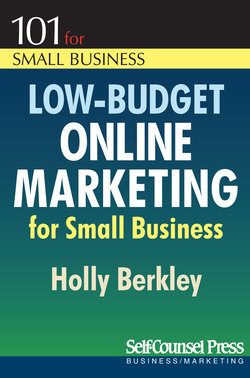Читать книгу Low-Budget Online Marketing - Holly Berkley - Страница 11
На сайте Литреса книга снята с продажи.
Case Study
ОглавлениеPetopia launched a million-dollar ad campaign to sell pet products online. But no matter how big their online marketing efforts were, their product was not right for the web. They never created a “need” for buying pet supplies online. Shipping costs were a primary factor affecting Petopia’s online sales. People just didn’t want to pay high shipping costs for a heavy bag of discount cat litter or dog food when they could buy the same product at almost any grocery store. Plus, most additional purchases people make for their pets are impulse buys, like cute chew toys and treats.
Petopia closed its online store in February 2001 and its domain name now points to www.Petco.com, one of its initial investors. Petco now uses the website to help promote its 500-plus retail stores. The website sells pet products online, but also provides a community for pet owners, as well as articles and health information about pets. However, the site’s primary function is to promote Petco’s retail stores and their overall brand as pet experts, not generate online sales.
A study by Forrester Research and the National Retail Federation found that US Internet users feel more comfortable spending money on small-ticket items, the most popular categories being software, music, books, toys, small appliances, gardening supplies, and flowers — basically, anything consumers don’t feel the need to touch.
This information applies especially to small businesses. Online stores tied to an established retail chain are much more likely to find success in selling big-ticket items than small, home-based businesses. This is because consumers are already familiar with the quality and “feel” of products from recognized brands.
Let’s take expensive clothing for an example. Banana Republic recently moved its specialty sizes (petites and longs) out of its brick-and-mortar stores and into its virtual store, www.BananaRepublic.com. Typically, I would never buy a suit that I had not tried on first, but I will buy from BananaRepublic.com for a couple of reasons. One, I have been inside their stores, touched their clothing, and know how their sizes fit. The second reason is that there are two Banana Republic stores less than ten miles from where I live, making it very convenient to return items that don’t fit quite right. The final and most important reason why I would buy an expensive suit that I had never tried on is that the marketing folks at Banana Republic created a genuine need for me to shop online, just like the New York tobacco tax did. Because I am above average height, I need extra-long pants. Long sizes from Banana Republic were only available online.
Let’s assume that you are not Banana Republic, and your product or service doesn’t seem well-suited to online sales. Just because people may not buy your product online doesn’t mean you shouldn’t use the Internet to market it. The Pepsi-Cola case study exemplifies everything that online marketing is supposed to be. It shows a complete synergy between the brand, offline sales, customer communications, and effective co-branding efforts.
Even if you don’t sell your product online, you can still use the Web to generate offline sales.
More and more often, effective online campaigns significantly help offline sales. A study by DoubleClick and Information Resources found that online advertising markedly influences consumer perceptions of an offline brand in a positive way.
